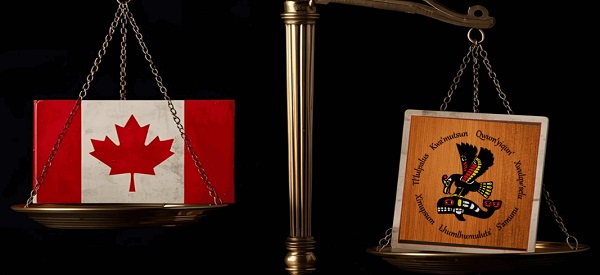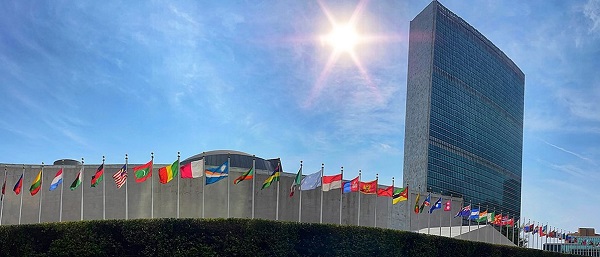Alberta
COVID19 spreading events – Premier Kenney asks Calgary and Edmonton residents to stop hosting gatherings

From the Province of Alberta
Strong public health measures are being implemented to protect the health system and limit the spread of COVID-19.
Expanded mandatory and voluntary limits on social gatherings are now in place to help reduce growing caseloads.
New COVID-19 measures
- Effective immediately, new mandatory and voluntary public health measures will help protect the health system and limit the spread of COVID-19.
- All Edmonton and Calgary residents should stop holding social gatherings within their homes and instead socialize in structured settings where it is easier to limit risk of exposure.
- The mandatory 15-person limit on social gatherings is being expanded to all communities on the watch list.
- Voluntary measures to limit cohorts to no more than three and to wear masks in the workplace unless able to safely distance are also strongly recommended for any community on the watch list, regardless of location.
- Additional measures to bolster Alberta’s public health response:
- AHS is prioritizing the hiring of about 380 additional contact tracing staff that will expand the contact tracing team to more than 1,100 people.
- To support contact tracing, all Albertans should download ABTraceTogether, Alberta’s contact tracing app.
- Alberta will also be shifting back to daily reporting of case numbers and information, including on weekends and holidays.
Latest updates
- To date, 24,684 Albertans have recovered from COVID-19.
- There are currently 6,822 active cases in the province.
- Over the last 48 hours:
- 802 new cases were identified on Nov. 4
- 609 new cases were identified on Nov. 5
- Alberta labs have now performed 1,869,192 tests on 1,305,540 people.
- There were nine additional deaths since Nov. 3, bringing the total number of COVID-19 deaths to 352.
- All zones across the province have cases:
- Calgary Zone: 2,886 active cases and 10,966 recovered
- South Zone: 398 active cases and 2,216 recovered
- Edmonton Zone: 2,819 active cases and 8,713 recovered
- North Zone: 431 active cases and 1,821 recovered
- Central Zone: 255 active cases and 914 recovered
- 33 active cases and 54 recovered cases in zones to be confirmed
- Additional information, including case totals, is online.
- There are 392 active cases and 1,631 recovered cases at continuing care facilities; 221 facility residents have died.
- School case information will be updated on Monday.
Updated contact tracing approach
- Alberta is piloting a targeted contact testing approach. This will make contact tracing faster and focus on populations at greatest risk of illness and further spreading COVID-19.
- Alberta Health Services will directly notify close contacts of confirmed COVID-19 cases in three priority groups only:
- health-care workers
- minors (parents will still be notified if their child has been exposed in a school setting)
- individuals who live or work within congregate or communal facilities
- AHS will no longer directly notify close contacts outside of these three priority groups, at this time.
- Albertans outside the priority groups who test positive will be asked to notify their own close contacts.
- AHS will continue to directly notify all positive cases of COVID-19 of their result, identify priority contacts that AHS will notify, and provide the case with guidance on notifying their own contacts.
Alberta
Busting five myths about the Alberta oil sands

Construction of an oil sands SAGD production well pad in northern Alberta. Photo supplied to the Canadian Energy Centre
From the Canadian Energy Centre
The facts about one of Canada’s biggest industries
Alberta’s oil sands sector is one of Canada’s most important industries — and also one of its most misunderstood.
Here are five common myths, and the facts behind them.
Myth: Oil sands emissions are unchecked

Steam generators at a SAGD oil sands production site in northern Alberta. Photo courtesy Cenovus Energy
Reality: Oil sands emissions are strictly regulated and monitored. Producers are making improvements through innovation and efficiency.
The sector’s average emissions per barrel – already on par with the average oil consumed in the United States, according to S&P Global – continue to go down.
The province reports that oil sands emissions per barrel declined by 26 per cent per barrel from 2012 to 2023. At the same time, production increased by 96 per cent.
Analysts with S&P Global call this a “structural change” for the industry where production growth is beginning to rise faster than emissions growth.
The firm continues to anticipate a decrease in total oil sands emissions within the next few years.
The Pathways Alliance — companies representing about 95 per cent of oil sands activity — aims to significantly cut emissions from production through a major carbon capture and storage (CCS) project and other innovations.
Myth: There is no demand for oil sands production

Expanded export capacity at the Trans Mountain Westridge Terminal. Photo courtesy Trans Mountain Corporation
Reality: Demand for Canadian oil – which primarily comes from the oil sands – is strong and rising.
Today, America imports more than 80 per cent more oil from Canada than it did in 2010, according to the U.S. Energy Information Administration (EIA).
New global customers also now have access to Canadian oil thanks to the opening of the Trans Mountain pipeline expansion in 2024.
Exports to countries outside the U.S. increased by 180 per cent since the project went into service, reaching a record 525,000 barrels per day in July 2025, according to the Canada Energy Regulator.
The world’s appetite for oil keeps growing — and it’s not stopping anytime soon.
According to the latest EIA projections, the world will consume about 120 million barrels per day of oil and petroleum liquids in 2050, up from about 104 million barrels per day today.
Myth: Oil sands projects cost too much
Reality: Operating oil sands projects deliver some of the lowest-cost oil in North America, according to Enverus Intelligence Research.
Unlike U.S. shale plays, oil sands production is a long-life, low-decline “manufacturing” process without the treadmill of ongoing investment in new drilling, according to BMO Capital Markets.
Vast oil sands reserves support mining projects with no drilling, and the standard SAGD drilling method involves about 60 per cent fewer wells than the average shale play, BMO says.
After initial investment, Enverus says oil sands projects typically break even at less than US$50 per barrel WTI.
Myth: Indigenous communities don’t support the oil sands

Chief Greg Desjarlais of Frog Lake First Nation signs an agreement in September 2022 whereby 23 First Nations and Métis communities in Alberta acquired an 11.57 per cent ownership interest in seven Enbridge-operated oil sands pipelines for approximately $1 billion. Photo courtesy Enbridge
Reality: Indigenous communities play an important role in the oil sands sector through community agreements, business contracts and, increasingly, project equity ownership.
Oil sands producers spent an average of $1.8 billion per year with 180 Indigenous-affiliated vendors between 2021 and 2023, according to the Canadian Association of Petroleum Producers.
Indigenous communities are now owners of key projects that support the oil sands, including Suncor Energy’s East Tank Farm (49 per cent owned by two communities); the Northern Courier pipeline system (14 per cent owned by eight communities); and the Athabasca Trunkline, seven operating Enbridge oil sands pipelines (~12 per cent owned by 23 communities).
These partnerships strengthen Indigenous communities with long-term revenue, helping build economic reconciliation.
Myth: Oil sands development only benefits people in Alberta
Reality: Oil sands development benefits Canadians across the country through reliable energy supply, jobs, taxes and government revenues that help pay for services like roads, schools and hospitals.
The sector has contributed approximately $1 trillion to the Canadian economy over the past 25 years, according to analysis by the Macdonald-Laurier Institute (MLI).
That reflects total direct spending — including capital investment, operating costs, taxes and royalties — not profits or dividends for shareholders.
More than 2,300 companies outside of Alberta have had direct business with the oilsands, including over 1,300 in Ontario and almost 600 in Quebec, MLI said.
Energy products are by far Canada’s largest export, representing $196 billion, or about one-quarter of Canada’s total trade in 2024, according to Statistics Canada.
Led by the oil sands, Canada’s energy sector directly or indirectly employs more than 445,000 people across the country, according to Natural Resources Canada.
Alberta
Diploma Exams Affected: No school Monday as ATA rejects offer of enhanced mediation

Premier Danielle Smith, Minister of Finance Nate Horner, and Minister of Education Demetrios Nicolaides issued the following statement.
“Yesterday, the Provincial Bargaining and Compensation Office wrote to the Alberta Teachers’ Association (ATA) and formally requested an agreement to enter an enhanced mediation process.
“This process would have ensured that students returned to the classrooms on Monday, and that teachers returned to work.
“Negotiating would have continued with the ATA, Teachers’ Employer Bargaining Association (TEBA) and a third-party mediator to propose a recommended agreement.
“We are very disappointed that the Alberta Teachers’ Association refused this offer. Teachers and students should also be disappointed.
“PBCO made this offer to the ATA because the union has not made a reasonable offer and this strike is impacting students. Alberta’s government is trying to put kids first and bring an end to this strike.
“The offer of enhanced mediation provided a clear path to ending it.
“We want the same things as the ATA: More teachers. More pay for teachers. More educational assistants. And more classrooms.
“This strike has gone on too long and we are extremely concerned about the impact it is having on students.
“We are willing to consider further options to ensure that our next generation gets the world-class education they deserve. After about three weeks, a strike of this nature would reach the threshold of causing irreparable harm to our students’ education.
“The ATA needs to do what is right for its members, and for all Alberta students.
“If it refuses to do so, we will consider further options to bring this strike to an end.”
Diploma exam update
November diploma exams will be optional for students.
With instructional time in schools disrupted due to the teacher strike, the November 2025 diploma exams will now be optional for students. Students who wish to write a diploma exam may request to do so, and their school boards will accommodate the request.
The optional diploma exams apply to all schools provincewide. These exams will still take place on the currently scheduled dates.
Students who choose not to write the November diploma exams can still complete their courses and graduate on time. Their final grade will be based entirely on the school-awarded mark provided by their teacher.
Choosing not to write the November diploma exams will not affect a student’s ability to apply to, be accepted by, or attend post-secondary institutions after graduation.
No changes have been made to the January and June diplomas and provincial achievement tests.
Quick facts
- Students are automatically exempted from writing the November diploma exams but can request to write them.
- School boards must allow the student to write the diploma exam if requested.
-

 Business2 days ago
Business2 days agoFord’s Whisky War
-

 Agriculture16 hours ago
Agriculture16 hours agoIs the CFIA a Rogue Agency or Just Taking Orders from a Rogue Federal Government?
-

 Focal Points2 days ago
Focal Points2 days agoTrump Walks Back His Tomahawk Tease from Zelensky
-

 Business1 day ago
Business1 day agoTrump Blocks UN’s Back Door Carbon Tax
-

 Business1 day ago
Business1 day agoJudges are Remaking Constitutional Law, Not Applying it – and Canadians’ Property Rights are Part of the Collateral Damage
-

 Red Deer1 day ago
Red Deer1 day agoYour last minute election prep: Common Sense Red Deer talks to the candidates
-

 Automotive2 days ago
Automotive2 days ago$15 Billion, Zero Assurances: Stellantis Abandons Brampton as Trudeau-Era Green Deal Collapses
-

 Business1 day ago
Business1 day agoTrump Admin Blows Up UN ‘Global Green New Scam’ Tax Push, Forcing Pullback








